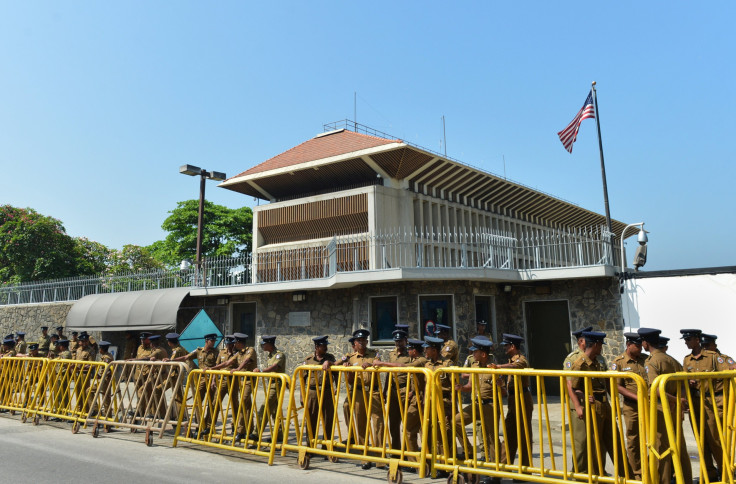US Citizens In Sri Lanka Warned Of Possible Violence Amid Political Crisis

After observing the currently unstable political scenario of Sri Lanka, following the country’s President Maithripala Sirisena decision to dismiss the Prime Minister Ranil Wickremesinghe on Friday and suspend the parliament, the U.S. embassy in Colombo issued a warning Monday for all Americans living in the nation to expect instances of public confrontations with a possibility of violence.
“The U.S. Embassy advises U.S. citizens of an increased likelihood of political turmoil, civil unrest, and demonstrations as a result of the President of Sri Lanka’s decision to dismiss the Prime Minister and suspend parliament. The Embassy reminds citizens that even demonstrations intended to be peaceful can turn confrontational and escalate into violence. You should avoid areas of demonstrations and exercise caution if in the vicinity of any large gatherings, protests, or demonstrations,” a statementreleased by the embassy read.
In addition, the embassy encouraged citizens of United States in Sri Lanka to keep a low profile and be wary of their surroundings when they go out in public. The citizens were also told to follow local media for news updates on the developing situation in the nation.
The embassy also put out its contact numbers — +94 11 249-8500, +94 077-725-6307 (after hours) — along with the statement, in case someone needed to reach out in an emergency. People could also mail to colomboacs@state.gov with queries or requests.
Hours before sending out the alerts for the U.S. citizens living in Sri Lanka, the embassy also put out another statement urging Sirisena to begin the process of restoring peace in the nation by reconvening the parliament.
“The United States continues to follow developments in Sri Lanka with concern. We urge all sides to refrain from intimidation and violence. We call on the President, in consultation with the Speaker, to immediately reconvene parliament and allow the democratically elected representatives of the Sri Lankan people to fulfill their responsibility to affirm who will lead their government,” its statement said.
Claiming his decision was motivated by Sri Lanka’s economic collapse and a plot to kill him, Sirisena abruptly sacked Wickremesinghe and swore in ex-president Mahinda Rajapaksa as the new prime minister to replace him.
Wickremesinghe denounced Sirisena’s action as illegal and maintained he was still the prime minister of the country. Pledging to "eschew the politics of hate and set up an interim government that will protect the human rights of all citizens, that will protect the independence of the judiciary and establish law and order” he called on lawmakers to support his new government.
Before lawmakers could respond to Wickremesinghe’s call for support, Sirisena suspended parliament Saturday, until Nov. 16.
While Sri Lanka's foreign allies including India, the European Union and the U.S. urged Sirisena to abide by the constitution, China — to which the nation became massively indebted to under the presidency of Rajapaksa (who governed from 2005-2015) — congratulated the country’s newly appointed prime minister, making many suspect Beijing had a hand in bringing about Sri Lanka’s current political turmoil, NBC Newsreported.
© Copyright IBTimes 2025. All rights reserved.





















